
The history of Sneaky Dee's in Toronto
Sneaky Dee's was almost replaced by a 13-storey condo building which is a reminder that punk rock dive bars don't generally last very long in a city like Toronto.
But to last this long they must have been doing something right, and it's probably not just their deceptively simple winning formula of cheap beer, giant plates of late night nachos and notoriously loud bands.
Generation after generation of college students and young punk bands have made Sneaky Dee's their home-away-from-home, leaving layers of graffiti on the walls and booths.
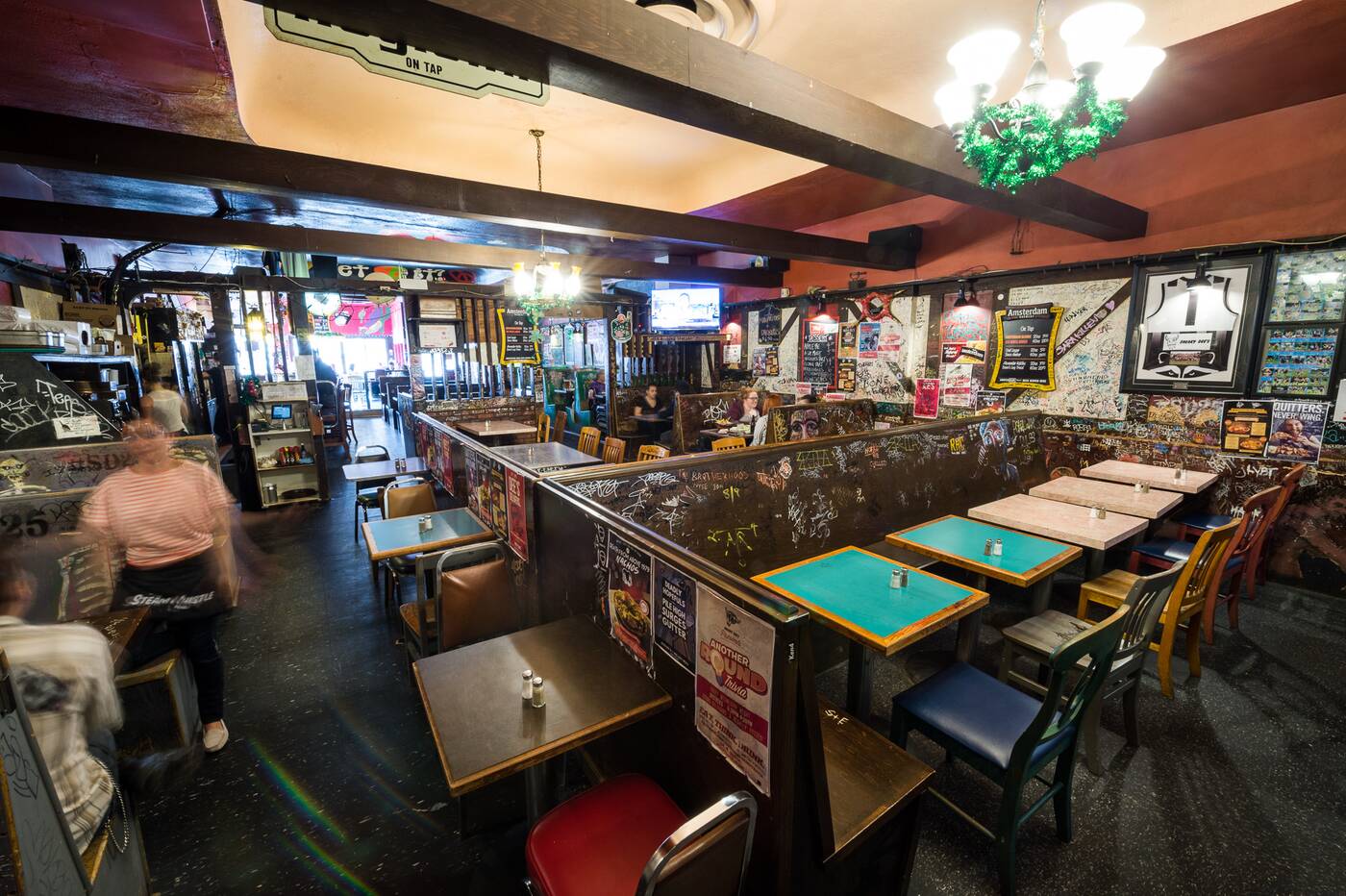
The inside of the restaurant at Sneaky Dee's.
Still, somehow the place never seems to change much, and feels like one of the few remaining examples of pre-gentrification downtown Toronto. It remains a family business, currently operated by three generations.
The current location at 431 College is actually the second home for the long running restaurant and concert venue. It originally opened in 1987 a few blocks north, across from what used to be Honest Ed's at 562 Bloor Street.
Open 24 hours a day, the restaurant was more the focus in that era, although bands played downstairs in the small dark basement, including early gigs by the Cowboy Junkies. It even acted as a venue for the first Fringe of Toronto Theatre Festival in 1989.
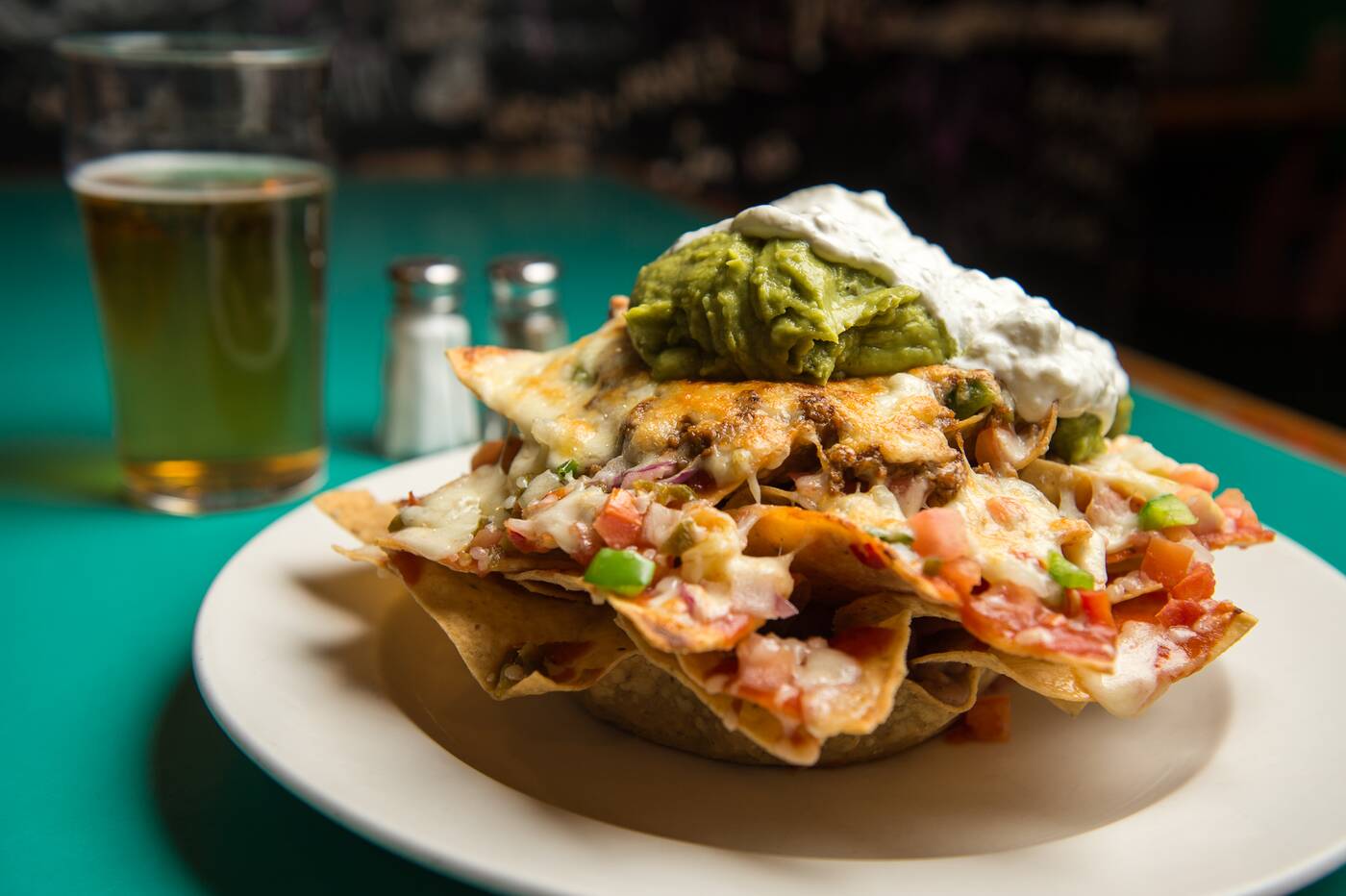
The infamous nachos at Sneaky Dee's.
It wasn't until 1990 that they moved to the corner of Bathurst and College, but the new location had already been the site of at least two previous restaurants.
El Rancho (formerly El Borinquen) operated out of the second floor until 1979, before moving across the street. A classified ad from 1949 names a restaurant called the Daisy Tea Room at that address as well, but it's probably safe to say that it didn't host a lot of rock concerts in that era.
In the early 90s it was a key venue for the Toronto punk rock scene, and regularly featured hardcore acts like Armed and Hammered, Bunch of Fucking Goofs, and Hockey Teeth.
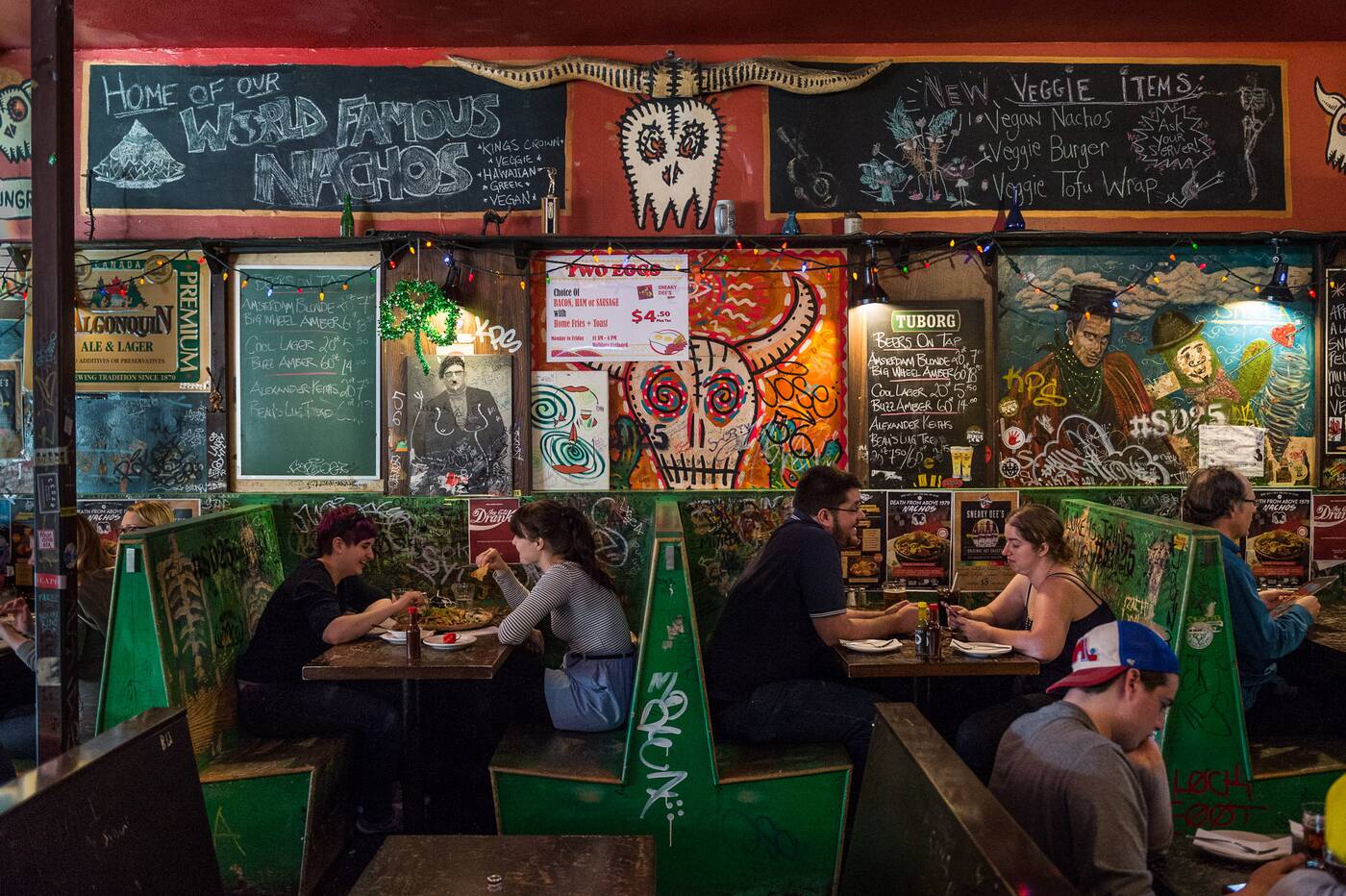
Booth seating at Sneaky Dee's.
In that era it was also a popular hangout for anti-fascist activist groups like Anti Racist Action (ARA).
That association culminated in a massive brawl between ARA members and Heritage Front neo-nazis outside the bar in 1993, in retaliation for an ARA protest earlier that day.
Heritage Front co-founder Wolfgang Droege and HF member Chris Newhook were eventually convicted in 1995 on a variety of charges related to the incident.
It was closely associated with the Kensington Market punk scene for much of the 90s, but the 200 capacity concert venue upstairs has hosted far more than just hardcore bands, and even went through a period in the late 90s when DJs replaced live music.
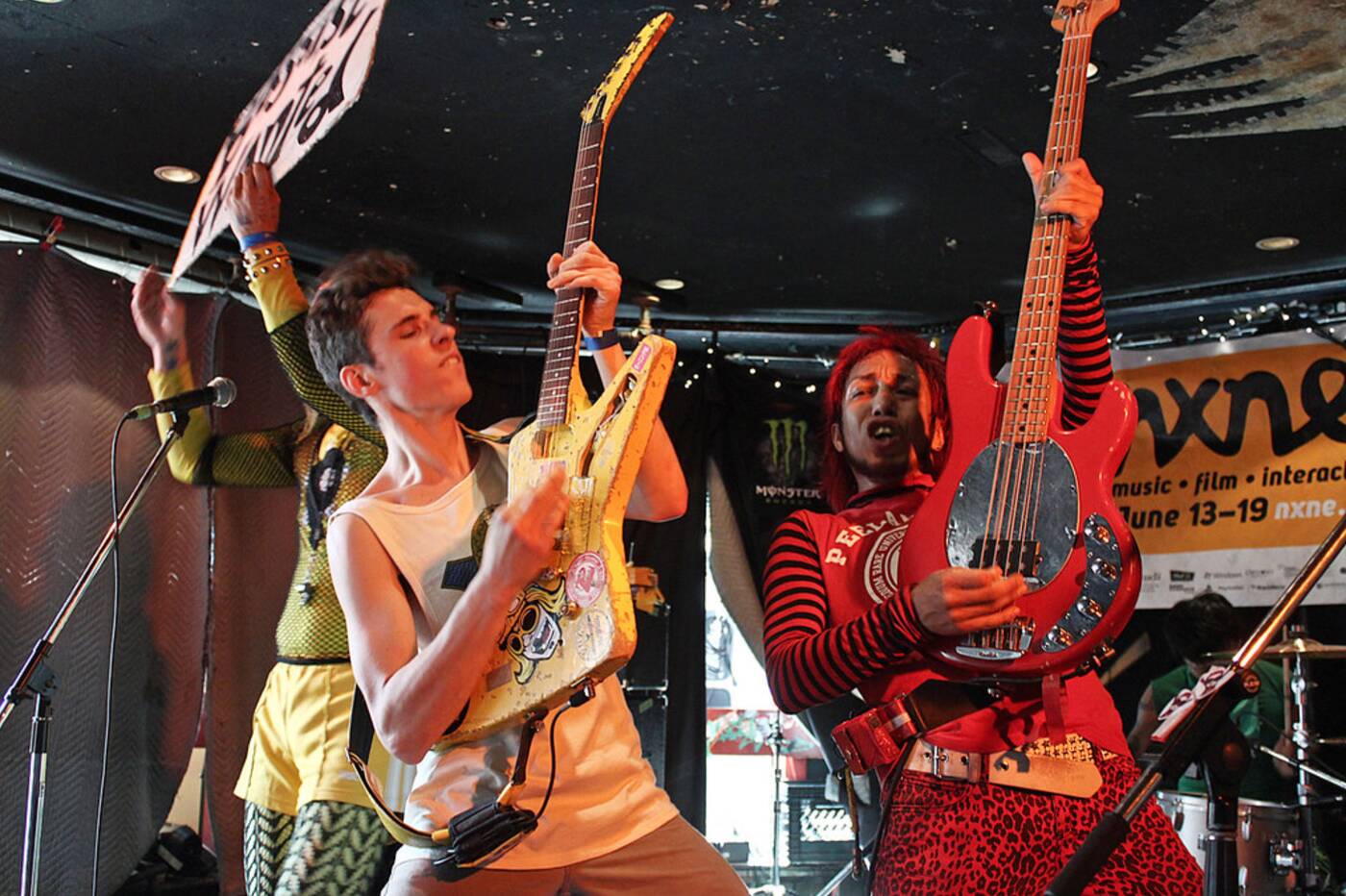
Peelander-Z performing at Sneaky Dee's in 2011 during NXNE. Photo by Jackman Chu.
When bands returned in 2002, programming expanded greatly to include a mixture of eclectic dance parties like Shit La Merde, as well as the loud rock bands that it was originally known for.
The long running and influential Wavelength series ran Sunday nights there for a while, and it was also once home to the Trampoline Hall series.
It's been a key launching pad for countless bands over the years, and has played host to a very diverse range of indie acts, including Feist (who is rumoured to have worked there at one point), Broken Social Scene, and Dirty Projectors.
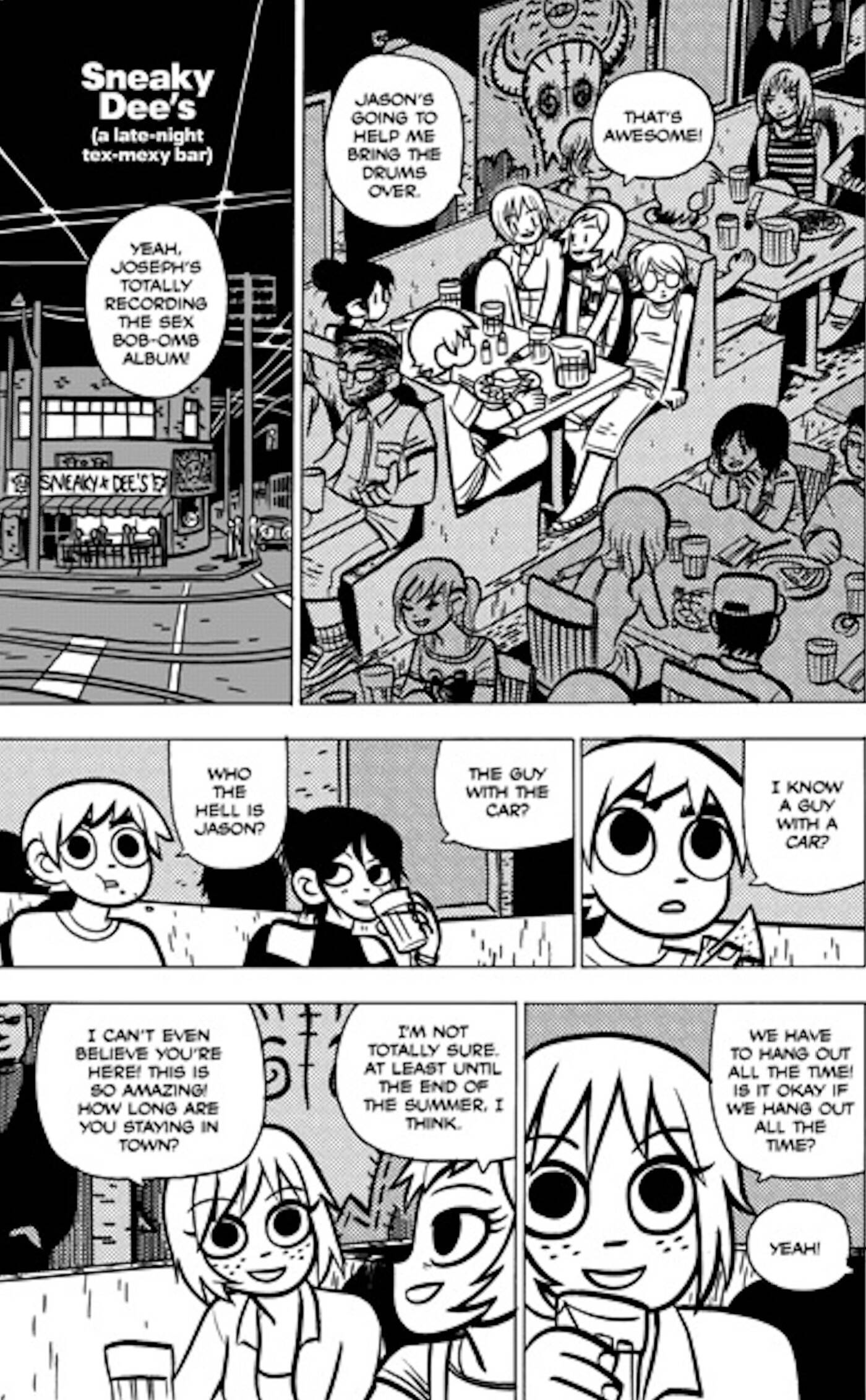
Sneaky Dee's appeared in the Toronto comic Scott Pilgrim.
Indie rock superstars Arcade Fire thanked Sneaky Dee's in their Juno acceptance speech, which is probably the only time a grimy tex-mex restaurant will ever get a shout out on the music award show.
The comic book series Scott Pilgrim featured the bar as a location, although unlike Lee's Palace, it didn't end up appearing in the movie version.
Toronto hardcore heroes Fucked Up have two breakfasts on the menu dedicated to them, but the bar also has dishes created in honour of metalcore band Cancer Bats and electro pop singer Lights, which gives a sense of how broad of an appeal the place has had with musicians of all stripes.
Longtime booker Shaun Bowring opened up his own live music venue the Garrison in 2009, and brought some of the indie scene westward with him, but Sneaky Dee's remained a very active venue, especially for up-and-coming bands.
With a 200 person capacity, it can handle emerging touring acts, but it's also not out of reach for local bands.
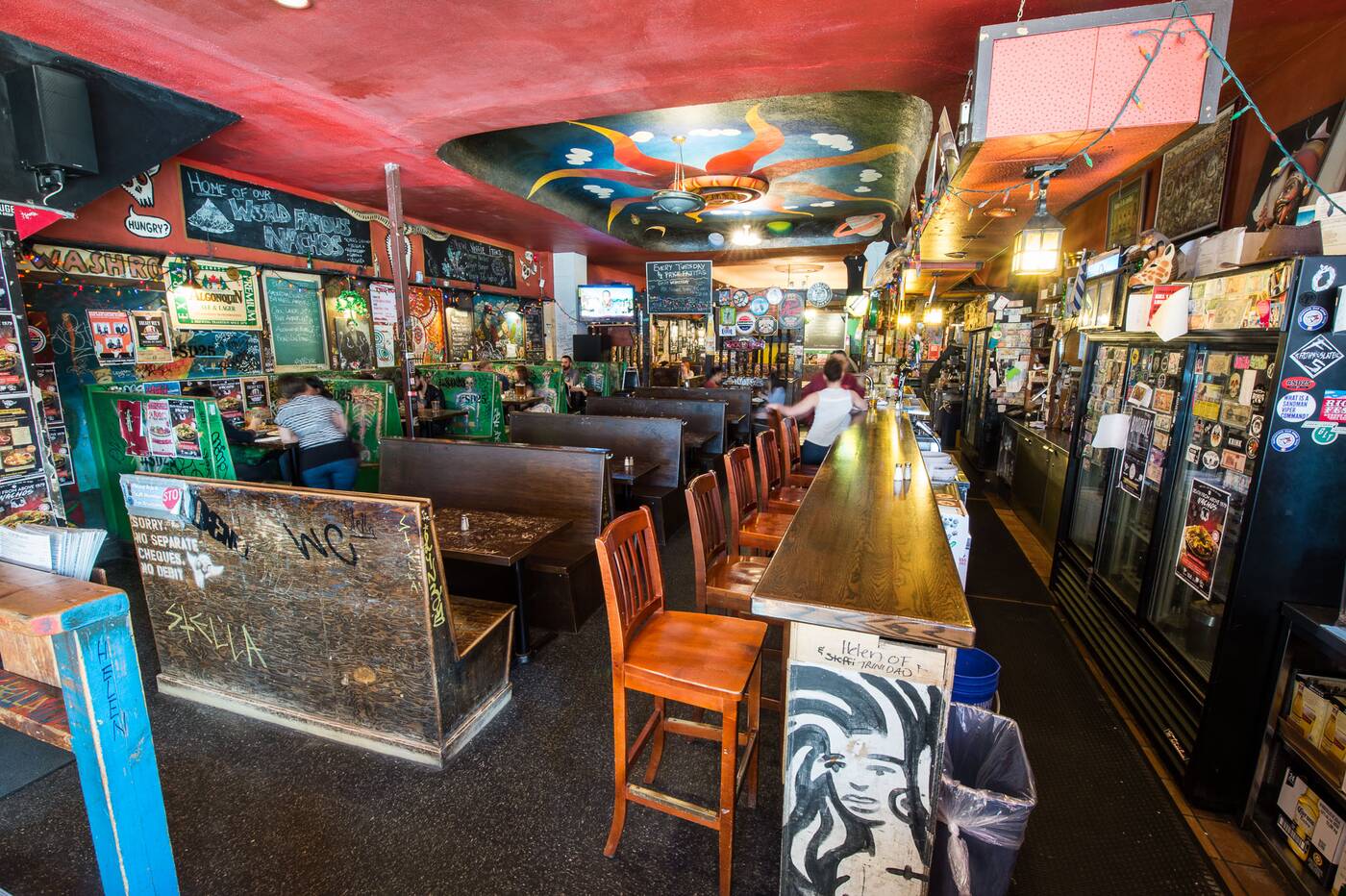
The inside of Sneaky Dee's.
It continues to accumulate a growing number of nicknames, from the obvious (Dee's) to the disgusting (Sleazy Disease), but even the latter is usually meant affectionately.
The food might not be as cheap as it once was, but the massive portions, late hours, and vegan options have continued to keep the crowds young, with a smattering of original era patrons mixed in.
For a venue that was originally an afterthought to a restaurant, it's carved a fairly impressive spot for itself in Toronto music history. In some ways, the carved up tables and wallpaper of band stickers serves as a living and constantly growing record of that history.
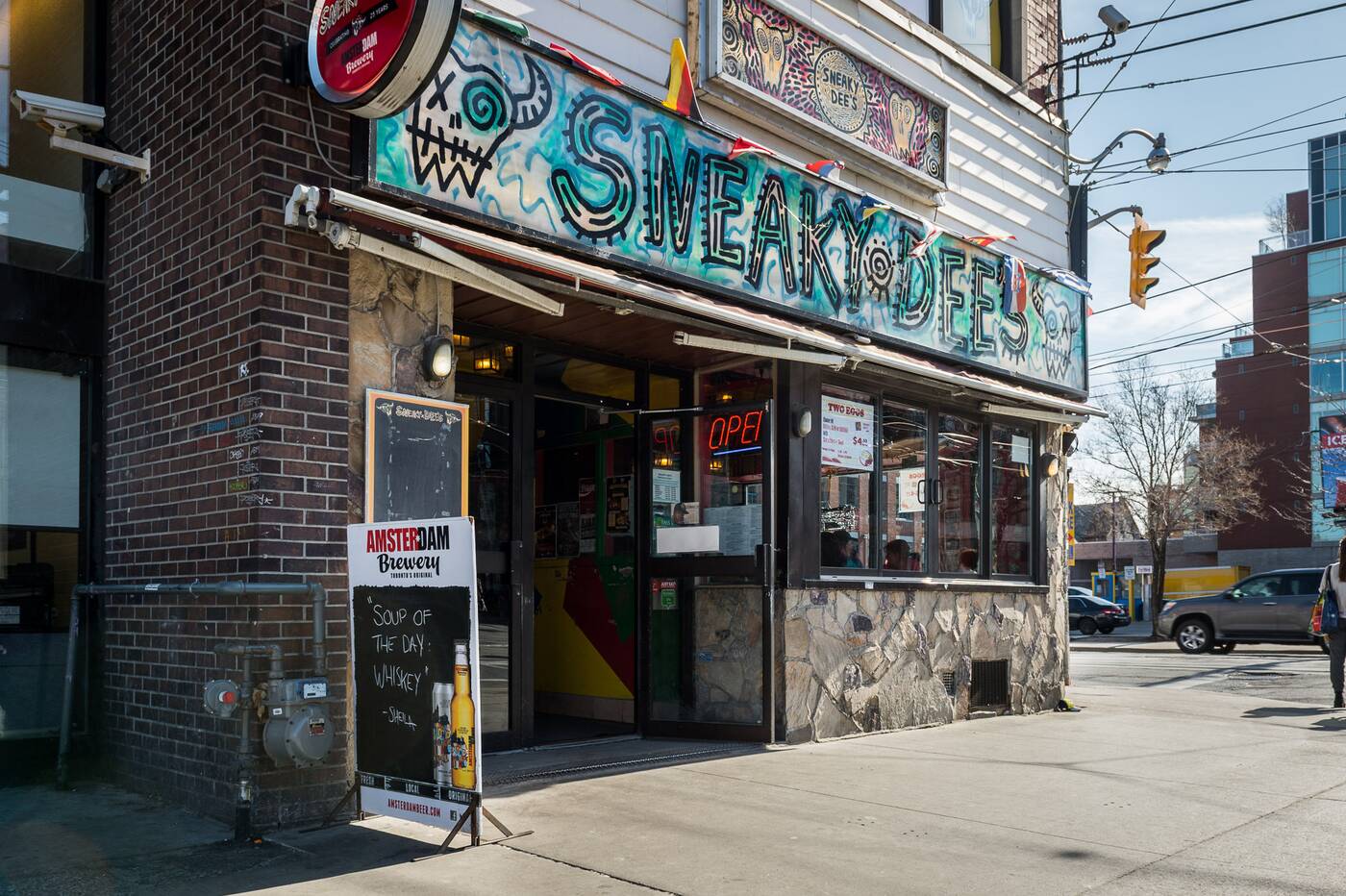
Matt Forsythe.
Latest Videos
Latest Videos
Join the conversation Load comments







